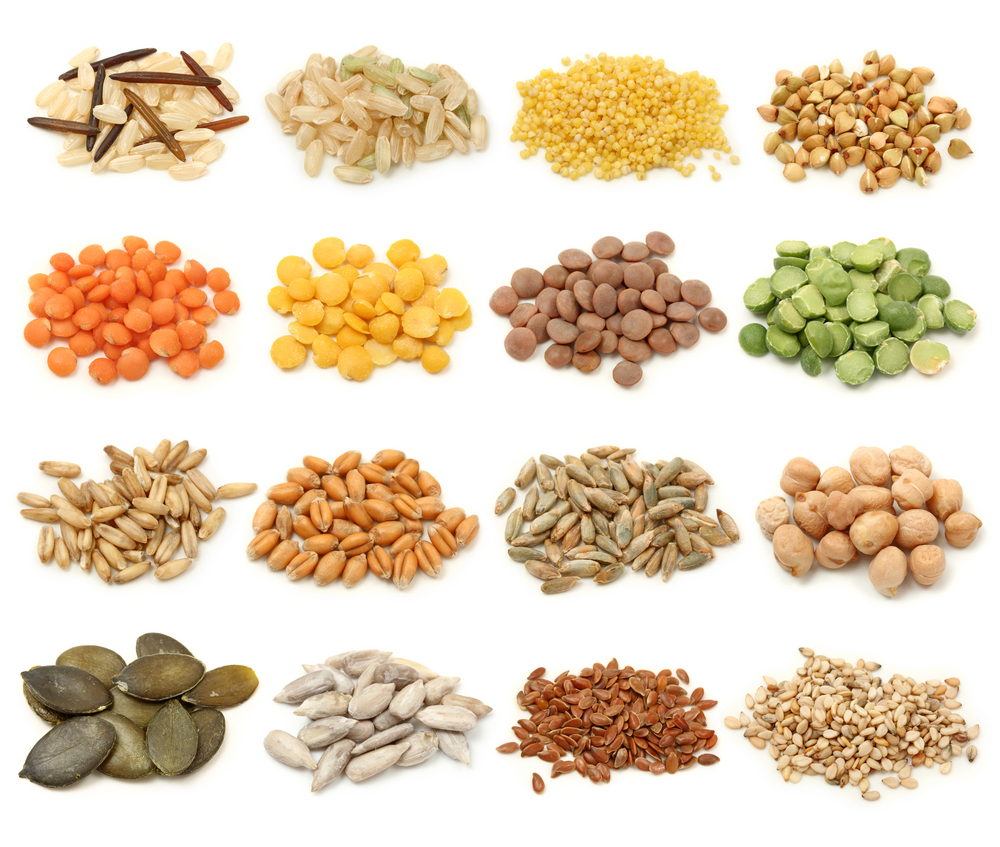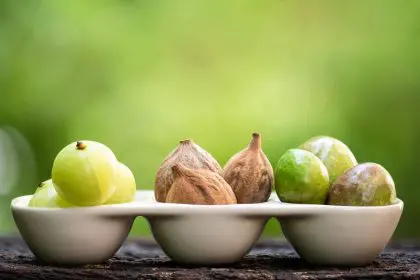That expensive supplement routine might be draining your wallet without delivering the nutritional punch you’re seeking. Meanwhile, some of nature’s tiniest foods pack more vitamins, minerals, and antioxidants into a single tablespoon than many colorful pills in those fancy bottles. Seeds, the embryonic beginnings of plant life, concentrate remarkable nutrition into microscopic packages designed to sustain new life. This biological imperative makes them nutritional goldmines that often outperform processed supplements in both nutrient density and bioavailability. While supplements isolate specific compounds, seeds provide naturally occurring nutrient complexes with synergistic compounds that enhance absorption and effectiveness. These tiny powerhouses might be the most overlooked superfoods in your pantry.
The ancient superfood making a modern comeback
Long before trendy superfoods dominated health store shelves, ancient civilizations recognized the extraordinary power of flaxseeds. The Babylonians cultivated them as early as 3000 BCE, while Hippocrates prescribed them for various ailments. Today, nutritional science validates what traditional wisdom suggested, flaxseeds offer nutritional benefits that rival or exceed many targeted supplements.
The omega-3 fatty acid content in flaxseeds stands out as particularly remarkable. Just two tablespoons provide over 100% of the recommended daily intake of alpha-linolenic acid, the plant form of omega-3. This same amount would require multiple fish oil capsules, without the added benefits of fiber and other nutrients that flaxseeds naturally contain.
Beyond omega-3s, flaxseeds deliver an impressive array of additional nutrients. They contain high levels of lignans, powerful plant compounds with antioxidant and estrogen-modulating properties that appear in concentrations up to 800 times higher than other plant foods. These compounds show promising research for hormone-related health concerns and certain cancer risk factors.
The fiber profile of flaxseeds provides both soluble and insoluble types, making them particularly effective for digestive health and cholesterol management. This combination creates a gentle but effective impact on regularity while simultaneously supporting beneficial bacteria in the gut microbiome.
For women experiencing menopause symptoms, flaxseeds may offer natural relief comparable to targeted supplements. Research suggests their unique lignan content can help moderate hot flashes and other symptoms through gentle hormonal modulation without the side effects sometimes associated with hormone-focused supplements.
Maximizing the benefits requires proper preparation. Unlike some seeds, flaxseeds need grinding to break their tough outer hull, allowing digestive enzymes to access their nutrition. A dedicated coffee grinder or food processor transforms these hard seeds into a nutty meal that can be added to countless foods. Ground flaxseeds should be stored in the refrigerator or freezer to prevent their delicate oils from oxidizing.
The mighty mineral source that outclasses calcium supplements
When bone health concerns arise, most people reach for calcium supplements without realizing that sesame seeds outperform many commercial options. These tiny white or black seeds concentrate remarkable amounts of calcium in bioavailable forms accompanied by cofactors that enhance utilization.
The calcium content of sesame seeds surprises most nutrition professionals. One quarter cup of whole sesame seeds provides approximately 350mg of calcium, rivaling a calcium supplement tablet while delivering dozens of additional nutrients absent from isolated supplements. When ground into tahini paste, the bioavailability increases further, making it one of the most efficient plant-based calcium sources available.
What makes sesame particularly valuable is its complementary nutrient profile that supports bone health beyond just calcium. These seeds provide significant magnesium and phosphorus, minerals essential for proper calcium utilization and bone matrix formation. Many calcium supplements lack these synergistic nutrients, potentially limiting their effectiveness compared to whole food sources.
Zinc content represents another standout feature of sesame seeds. A quarter cup provides approximately 20% of daily zinc needs, supporting immune function, protein synthesis, and hundreds of enzymatic reactions throughout the body. This same amount of zinc would typically require a dedicated supplement, yet sesame provides it alongside numerous other beneficial compounds.
The antioxidant profile of sesame seeds features unique compounds rarely found in typical diets. Sesamol and sesamin demonstrate protective effects against oxidative damage while potentially supporting healthy inflammation responses. These specialized antioxidants complement the better-known varieties found in colorful fruits and vegetables.
Incorporating sesame into daily eating patterns requires minimal effort. Beyond tahini, which blends easily into dressings and sauces, toasted sesame seeds add nutty flavor to virtually any savory dish. Sesame butter provides a spreadable option for those avoiding peanuts or tree nuts, delivering comparable protein with additional mineral benefits.
The protein-packed seed that rivals amino acid supplements
The fitness supplement industry generates billions selling protein powders and amino acid formulations, yet humble pumpkin seeds naturally provide complete protein with an amino acid profile that rivals many commercial products.
The protein content of pumpkin seeds stands out even among other seeds and nuts. A quarter cup serving delivers approximately 9 grams of complete protein containing all nine essential amino acids. This same protein amount would typically cost significantly more in supplement form while lacking the additional nutrients naturally present in pumpkin seeds.
What makes pumpkin seed protein particularly valuable is its rich content of tryptophan, an amino acid precursor to serotonin that supports mood regulation and sleep quality. Many people take tryptophan or 5-HTP supplements separately, unaware that pumpkin seeds provide this compound naturally alongside other mood-supporting nutrients like magnesium and B vitamins.
The magnesium content deserves special attention, with a quarter cup providing nearly 40% of daily requirements. Magnesium deficiency affects an estimated 50% of Americans, contributing to stress responses, muscle tension, and sleep difficulties. Many take isolated magnesium supplements when regular pumpkin seed consumption could address this common deficiency through food.
Iron availability makes pumpkin seeds especially valuable for those avoiding animal products or experiencing increased iron needs. Their non-heme iron comes paired with vitamin C and other compounds that enhance absorption, potentially outperforming isolated iron supplements that often cause digestive discomfort.
The balanced fatty acid profile features both omega-3 and omega-6 fatty acids in ratios that support healthy inflammation responses. This natural balance contrasts with many isolated omega supplements that might provide excessive amounts of specific fatty acids without the counterbalancing compounds found in whole foods.
Incorporating pumpkin seeds requires almost no preparation. Unlike some seeds, they need no grinding to release their nutrition and can be consumed raw or lightly toasted for enhanced flavor. Their versatility spans everything from salad toppings to trail mixes to seed butter, making them among the most convenient nutrient-dense foods available.
The antioxidant treasure hiding in your baking ingredients
While many people spend substantially on specialized antioxidant supplements, sunflower seeds quietly offer one of the most concentrated sources of vitamin E and selenium available in the food supply, often at a fraction of the cost of comparable supplements.
The vitamin E content stands out immediately, with a quarter cup providing approximately 60% of daily needs. This fat-soluble antioxidant plays crucial roles in skin health, cardiovascular protection, and immune function. The natural vitamin E in sunflower seeds comes in various forms rather than just alpha-tocopherol found in many supplements, potentially offering broader antioxidant protection.
Selenium represents another standout nutrient in sunflower seeds, with a quarter cup delivering approximately 30% of daily requirements. This trace mineral functions as a cofactor for antioxidant enzymes and supports thyroid health, immune function, and cellular protection against oxidative damage. Many multivitamins contain selenium, but the form found naturally in seeds may offer enhanced bioavailability.
The B vitamin profile of sunflower seeds contains significant amounts of folate, niacin, pantothenic acid, and vitamin B6. This spectrum supports energy production, cognitive function, and cellular repair mechanisms. The natural complex of B vitamins in whole foods often provides better utilization than isolated supplements, particularly for those with genetic variations affecting vitamin conversion and absorption.
Plant compounds in sunflower seeds include phenolic acids and flavonoids that demonstrate antioxidant and anti-inflammatory properties in research studies. These phytonutrients remain largely absent from standard supplements yet may contribute significantly to the health benefits observed with regular seed consumption.
Incorporating sunflower seeds into daily eating patterns requires minimal effort due to their mild, versatile flavor. Sunflower seed butter provides an excellent alternative for those with nut allergies, while the raw or toasted seeds blend seamlessly into everything from yogurt parfaits to vegetable dishes. The versatility extends to sunflower microgreens, which offer even higher nutrient concentration than the mature seeds.
The tiny seed changing heart health approaches
Cardiovascular supplements represent a massive industry, with products targeting everything from cholesterol management to blood pressure. Meanwhile, chia seeds naturally address multiple heart health markers simultaneously through their exceptional nutrient density and unique properties.
The omega-3 content of chia seeds rivals that of flaxseeds, with two tablespoons providing approximately 5 grams of alpha-linolenic acid. This plant-based omega-3 source demonstrates promising research for supporting healthy inflammation patterns, balanced blood lipids, and arterial function. Unlike fish oil supplements that sometimes cause digestive discomfort or “fishy” aftertaste, chia delivers comparable omega-3 benefits without these drawbacks.
The fiber profile makes chia particularly valuable for heart health, with two tablespoons providing nearly 10 grams of fiber, including both soluble and insoluble types. The soluble fiber forms a gel in the digestive tract that can bind cholesterol compounds and support healthy blood glucose patterns. Many fiber supplements provide only isolated fiber types without the additional nutrients naturally present in chia.
Potassium content in chia contributes to its cardiovascular benefits, with levels that support healthy blood pressure regulation alongside the seeds’ natural calcium, magnesium, and protein. This electrolyte balance addresses multiple aspects of cardiovascular function simultaneously rather than the single-target approach common in supplements.
Antioxidant compounds in chia include chlorogenic acid, caffeic acid, and various flavonols that demonstrate protective effects against oxidative damage to cardiovascular tissues. These compounds work synergistically with chia’s vitamin and mineral content to provide multi-layered support for heart health that isolated supplements rarely match.
The unique gelling property of chia seeds when exposed to liquid creates versatile culinary applications while potentially offering digestive benefits. This gel slows carbohydrate digestion and can support steady blood glucose levels rather than the sharp spikes and drops that stress cardiovascular function over time.
Incorporating chia requires no special preparation beyond basic soaking for optimal nutrient absorption. Adding chia to overnight oats, smoothies, yogurt, or even baked goods provides sustained nutrition with minimal effort. Unlike some seeds, chia requires no grinding to release its nutritional benefits, making it among the most convenient nutrient-dense foods available.
Maximizing benefits through proper preparation
While seeds offer exceptional nutrition, their preparation significantly impacts nutrient availability. Understanding optimal handling methods transforms these tiny packages from good to extraordinary nutritional sources.
Soaking many seeds briefly in water activates enzymes that neutralize natural compounds like phytic acid, which can bind minerals and limit absorption. This traditional preparation method, practiced across cultures for generations, improves digestibility and nutrient availability. Just a few hours of soaking seeds like pumpkin or sunflower before consumption or light toasting can enhance their nutritional profile.
Storage conditions dramatically affect seed quality, particularly for those with high omega-3 content like flax and chia. These delicate fatty acids oxidize readily when exposed to heat, light, or oxygen, potentially creating harmful compounds. Storing seeds in airtight containers in the refrigerator or freezer preserves their nutritional integrity and prevents rancidity that can sometimes go undetected by taste alone.
Grinding seeds like flax immediately before consumption provides optimal nutritional access. Pre-ground seeds lose nutritional value rapidly as their increased surface area accelerates oxidation. A dedicated coffee grinder used exclusively for seeds offers an inexpensive solution for maximizing nutritional benefits while maintaining convenience.
Combining complementary seeds creates synergistic effects beyond what any single variety provides. For example, the high zinc content of pumpkin seeds enhances the absorption of plant-based iron from sunflower seeds when consumed together. Similarly, the vitamin E in sunflower seeds helps protect the delicate omega-3 fatty acids in flax and chia from oxidation within the digestive tract.
Culinary applications that retain raw properties often maximize nutritional benefits. While light toasting enhances flavor and some nutrient availability, high-heat cooking can damage delicate compounds like omega-3 fatty acids and certain antioxidants. Adding seeds to dishes after cooking or using them in raw applications preserves their full nutritional potential.
When seeds truly outshine supplements
While quality supplements serve important purposes, particularly for addressing specific deficiencies, seeds offer distinct advantages that make them superior options for many nutritional needs.
The complexity factor represents perhaps the most significant advantage. Seeds contain naturally occurring nutrient complexes with compounds that enhance absorption and utilization. Even the most sophisticated supplement formulations cannot replicate the intricate biochemical relationships present in whole foods developed through millions of years of evolutionary adaptation.
Cost effectiveness becomes immediately apparent when comparing seeds to comparable supplements. The omega-3 content of a month’s supply of flaxseeds costs a fraction of equivalent fish oil capsules. Similarly, the calcium, magnesium, and antioxidant content of a month’s worth of mixed seeds would require numerous supplement bottles totaling significantly higher expense.
Sustainability considerations favor seeds over many supplements, particularly those derived from animal sources or requiring extensive processing. Seeds require relatively modest agricultural resources and maintain stable nutrition with simple storage, creating lower environmental impact than many supplement production and distribution chains.
Safety profiles generally favor whole foods over isolated supplements, which sometimes contain excessive amounts of specific compounds without the balancing elements present in natural sources. The risk of overconsumption remains minimal with seeds, as their natural nutrient density provides inherent limits through satiety mechanisms absent in supplement form.
Culinary enjoyment represents an often-overlooked advantage of seeds over supplements. The various flavors, textures, and culinary applications of different seeds make them pleasurable additions to meals rather than obligations to be swallowed and forgotten. This enjoyment factor supports consistent long-term consumption that ultimately determines nutritional benefit.
While supplements will always have their place, particularly for specific health conditions or life stages with increased nutritional demands, seeds offer a whole-food alternative that often provides comparable or superior benefits with additional advantages in cost, sustainability, and culinary versatility. The humble seed, nature’s original multivitamin, continues demonstrating that sometimes the most powerful nutrition comes in the smallest packages.

















